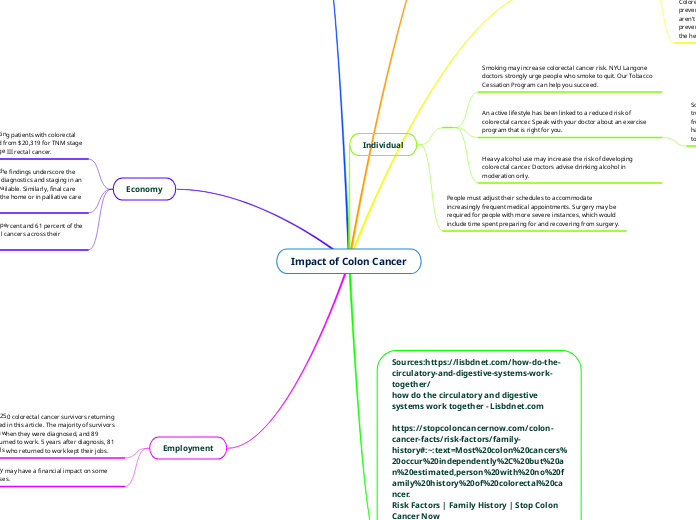por Shoals Shoals hace 3 años
156
Impact of Colon Cancer

por Shoals Shoals hace 3 años
156

Ver más
Some people with colon or rectal cancer may have long lasting trouble with chronic diarrhea, going to the bathroom frequently, or not being able to hold their stool. Some may also have problems with numbness or tingling in their fingers and toes (peripheral neuropathy) from chemo they received.